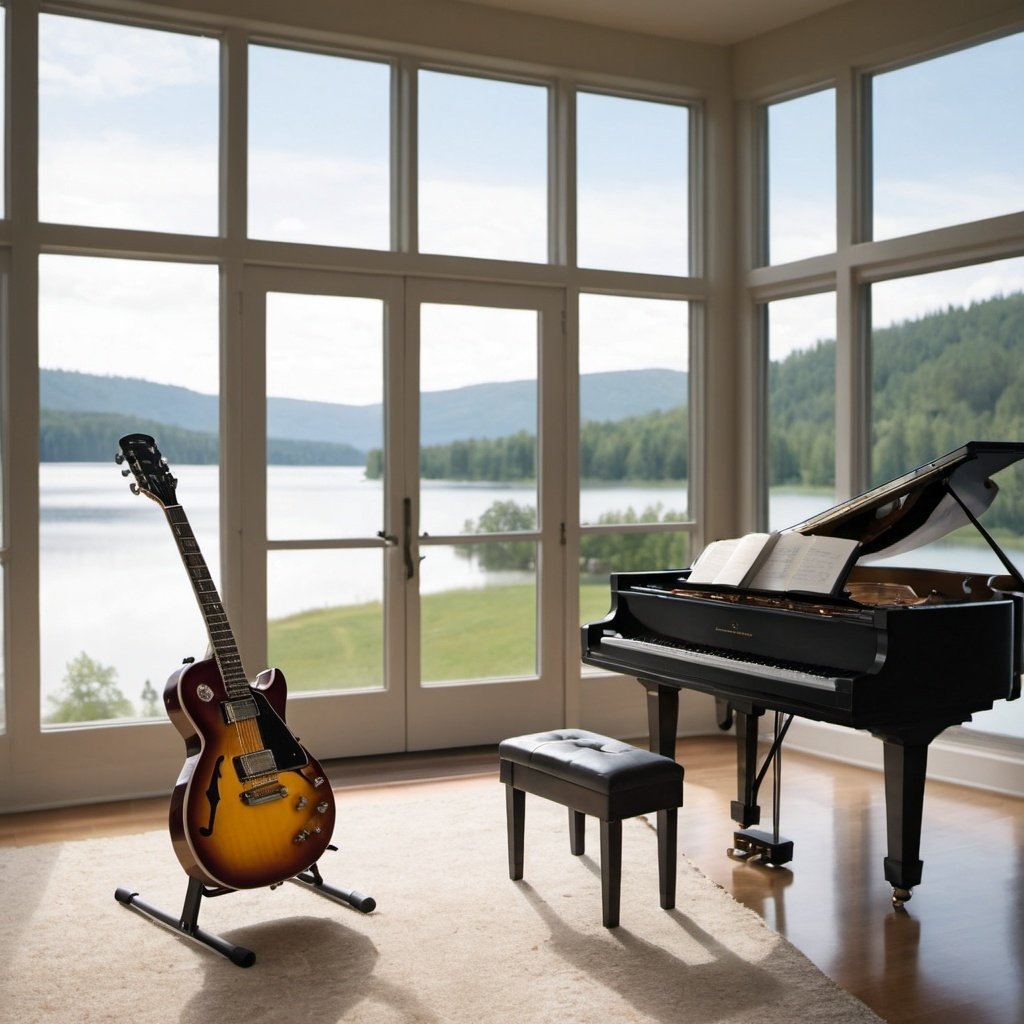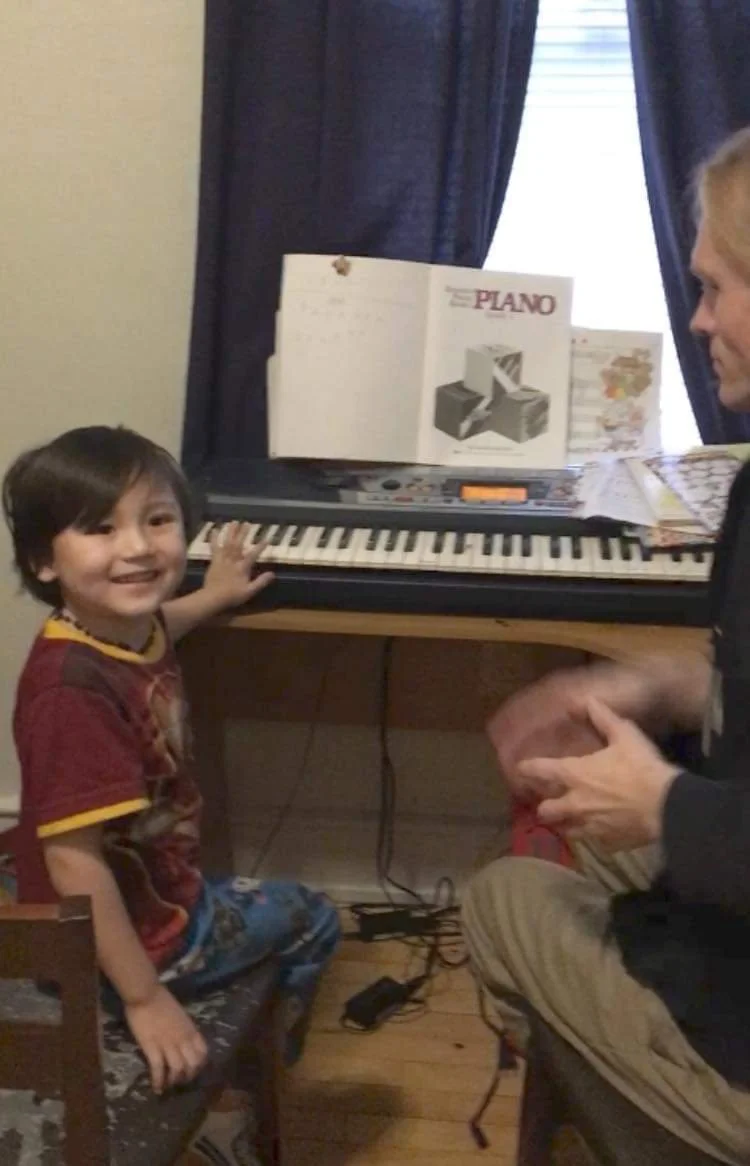How do lessons work?
I teach piano lessons, guitar lessons, and music production. There are three ways we can have lessons.
First, and most popular by far: I drive to your home once a week, for a 30 minute lesson. People generally choose to have me drive to them, since it saves them time.
Alternatively: I also work at a music store in Grayslake. You can drive out to my studio there, and have lessons on my personal piano if that’s more convenient.
Finally: There is always the option of video-call, or even phone call lessons. These options have their drawbacks. It’s more difficult for advanced students to articulate their volume changes over weak data connections, for example. But if you’re interested in virtual lessons, 2020 got me quite familiar with the entire process. For 2 years, all of my recitals were held virtually over YouTube and every one of my students stayed entirely virtual. Almost everyone has opted to return to in-person lessons in the last couple years.

Lesson Material
For Beginners:
There are basically 2 ways that I approach lessons with a beginner. The first is the traditional route. The one that most teachers go by. This involves getting into a curriculum and learning the basics of musical notation—in other words, learning to read sheet music. This will allow the student to play anything that has been specifically notated by a composer, and will provide the student with a great ability. Along the way, concepts of music theory will be taught. These concepts are great for understanding music, but they aren’t necessary for one to enjoy playing…as long as the reading skills are there. Most children begin with this method. However, sometimes people don’t respond to this approach and I improvise the curriculum for them. Flexibility in this regard is a strength of mine.
I teach through 4-5 levels of curriculum books, depending on starting age, and after those books are complete we move on to classical by default. If the student has any music they would prefer to work on, I am always thrilled to work on that with them instead. Enjoying and connecting with the music you work on is extremely important.
The second route is to play using a combination of the “ear” and music theory. By ear, I mean intuition regarding tones. Music theory involves ideas like chords, scales, and song structure. This is far less well-defined and lesson material often consists of the student’s favorite songs, rather than curriculum material.
Personally, I strive by default to see a balance of ear, theory knowledge, and reading proficiency with my students by the time they finish their time studying with me.
For experienced players:
A lot of my students are people who already knew their way around music when I met them. These lessons are always a ton of fun! I’m happy to help anybody work on their form, music theory, blues licks, Sonatas or whatever it is you want assistance with. If there is something very niche that I can’t help with, chances are I know somebody who can. I have a lot of musician friends.
Payments and Scheduling
Once a lesson day and time are worked out, we stick to that time and have one lesson per week. This is the best way to go about lessons—any less and it is difficult to maintain practice habits. Any more and students could feel a little burnt out. Lessons are paid by the month, at the beginning of the month.
When lesson times need to change, we will need to work it out as far in advance as possible. I keep a high student count, and it’s quite difficult to accommodate students who need to change times frequently. If a lesson is missed, I will do all that I can to reschedule the lesson into an open schedule spot.
Consistency is key to your success as a musician!
As for scheduling in general, since I make house calls it is important for me to try and stay in the same area of town whenever possible. Saturdays are generally used as a day for rescheduling those who missed their normal time for the week. Friday nights are available, but very unstable. I’m a professional musician, and am often hired for live entertainment on Friday and Saturday nights.
